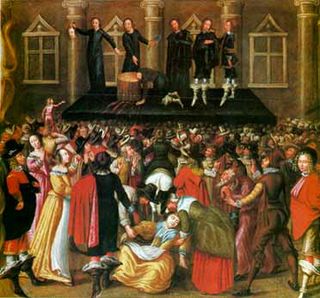 Another Mini-Lesson:
Another Mini-Lesson:The Rationalists thought the Puritans did not use enough of their scientific minds. The Romantics thought the Rationalists did not use enough of their imagination. How do you think the next group thought about the Romantics?
How would you feel about someone who was always stuck in their imagination?
The Realists came into fashion in the 1840s and 50s, and they did not think all the Romantic writings were doing much for people. The Realists saw social problems all around, and didn't think turning ones back on them would do much. Instead, they thought more could be accomplished by having readers face the ugly facts in their worlds.
Have you ever seen Boyz in tha Hood? It is an excellent example of realism. Boyz in tha Hood shows people
 who have never been to South-Central Los Angeles what life is like for the people who live there. When people see the blood and violence in the film, it should make them more aware of the social problems in that area than just being told about it. The realists felt the same way about slavery, the brewing civil war, women's rights, and many other social issues that they felt were not getting the attention they deserved.
who have never been to South-Central Los Angeles what life is like for the people who live there. When people see the blood and violence in the film, it should make them more aware of the social problems in that area than just being told about it. The realists felt the same way about slavery, the brewing civil war, women's rights, and many other social issues that they felt were not getting the attention they deserved.Realists did not want readers to use their imagination, so their work is extremely detailed. These details can be the ugly facts they are trying to disturb their readers with, or they may be extremely descriptive explainations of how things look or what a character does. Think again about Boyz in the Hood. It is meant to disturb people. When people are disturbed, they are more likely to try to fix a problem.
I have another theory . . . Realism emerged at the same time photography was becoming popular. Think about the difference between a painting and a photograph. When you view a painting, you are encouraged to use your imagination, but when you look at a photograph, that isn't as necessary. Think painting=imagination=Romanticism / photograph=detaill=realism. Reading realism is much like looking at a photograph; they provide all the details so you do not need your imagination.
Your tasks:
8. Read "A Story of an Hour" by Kate Chopin. You should be able to indentify the following in this story:
a. details that specifically explain a characters actions, or detailed descriptions of a setting
b. a social issue that Chopin wants to solve
Write a paragraph respone to a and b in which you explain how this story includes these aspects of realism. Each paragraph should have some direct evidence from "A Story of an Hour".
9. Read "The Battle with Mr Covey" by Frederick Douglass. Follow the same directions for #1. Go further on this one to explain what you think Douglass' purpose was for writing this. Your response should be three paragraphs.
10. Provide a modern example of realism (Boyz in tha Hood, and Menace II Society, for that matter are off-limits). This can be music, a movie, a television show, a book, or whatever you may choose. You need to explain how it is realism, and provide an example from your choice (a lyric, description of a scene, quote, etc.)
11. The fun part - - -
a. Decide what you like best, Dark Romanticism or Realism.
b. Create a short piece ( a poem or very short story) of whichever you choose.
c. Explain (with at least a paragraph or two with direct evidence from your own example) how it is a good representation of Dark Romanticism or Realism. Keep in mind that you are proving how your story fits whichever idea you choose, so discussing the idea itself is necessary.
12. Explain (with DIRECT EVIDENCE FROM YOUR OWN WORK) how you have met (or exceeded) at least two of the standards listed below.
ELAALRL1 The student demonstrates comprehension by identifying evidence (i.e., examples of diction, imagery, point of view, figurative language, symbolism, plot events and main ideas) in a variety of texts representative of different genres (i.e., poetry, prose [short story, novel, essay, editorial, biography], and drama) and using this evidence as the basis for interpretation.
ELAALRL2 The student identifies, analyzes, and applies knowledge of theme in a work of American literature and provides evidence from the work to support understanding.
ELAALRL3 The student deepens understanding of literary works by relating them to their contemporary context or historical background, as well as to works from other time periods.
ELAALRL4 The student employs a variety of writing genres to demonstrate a comprehensive grasp of significant ideas in selected literary works. The student composes essays, narratives, poems, or technical documents.




